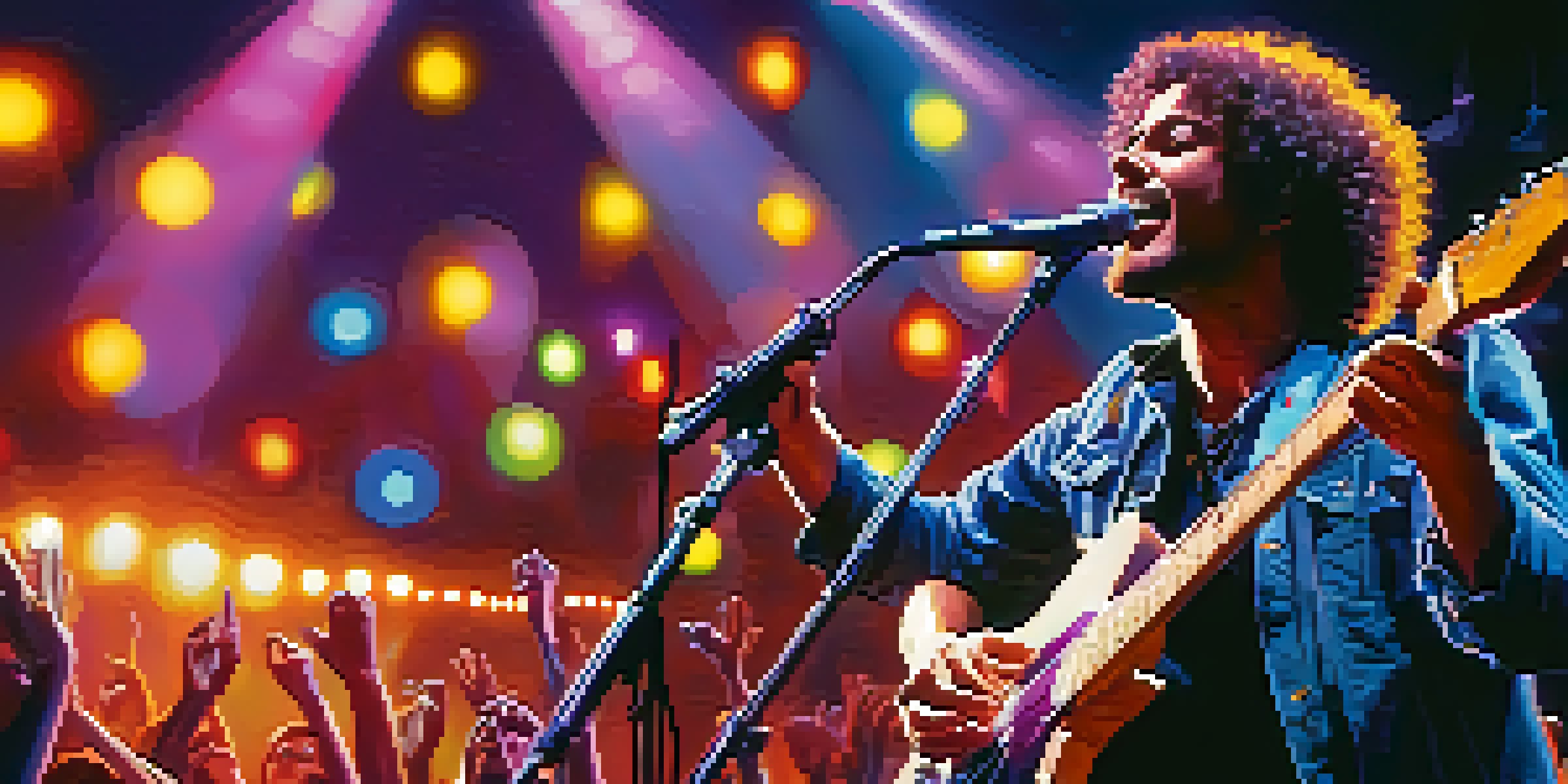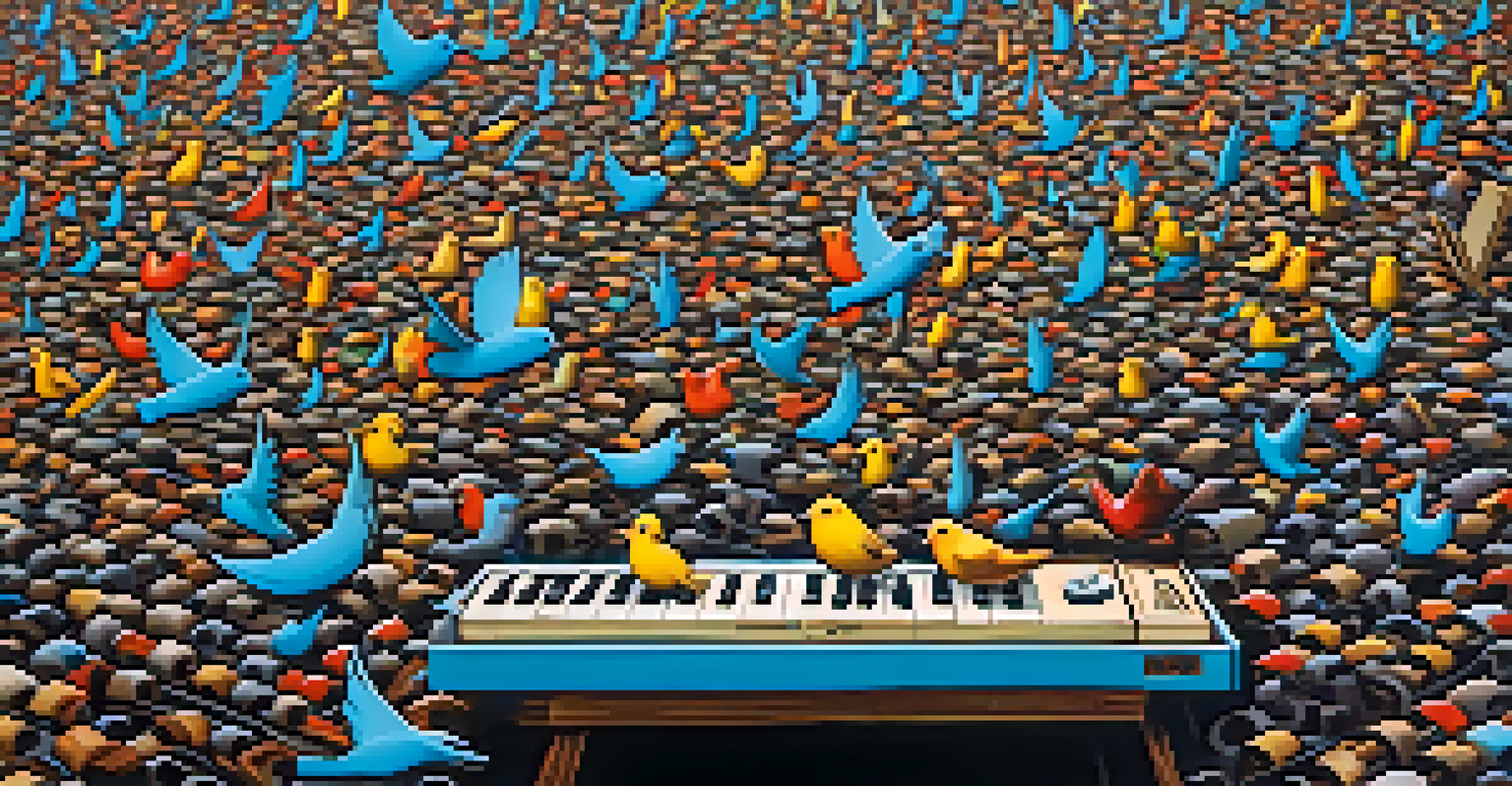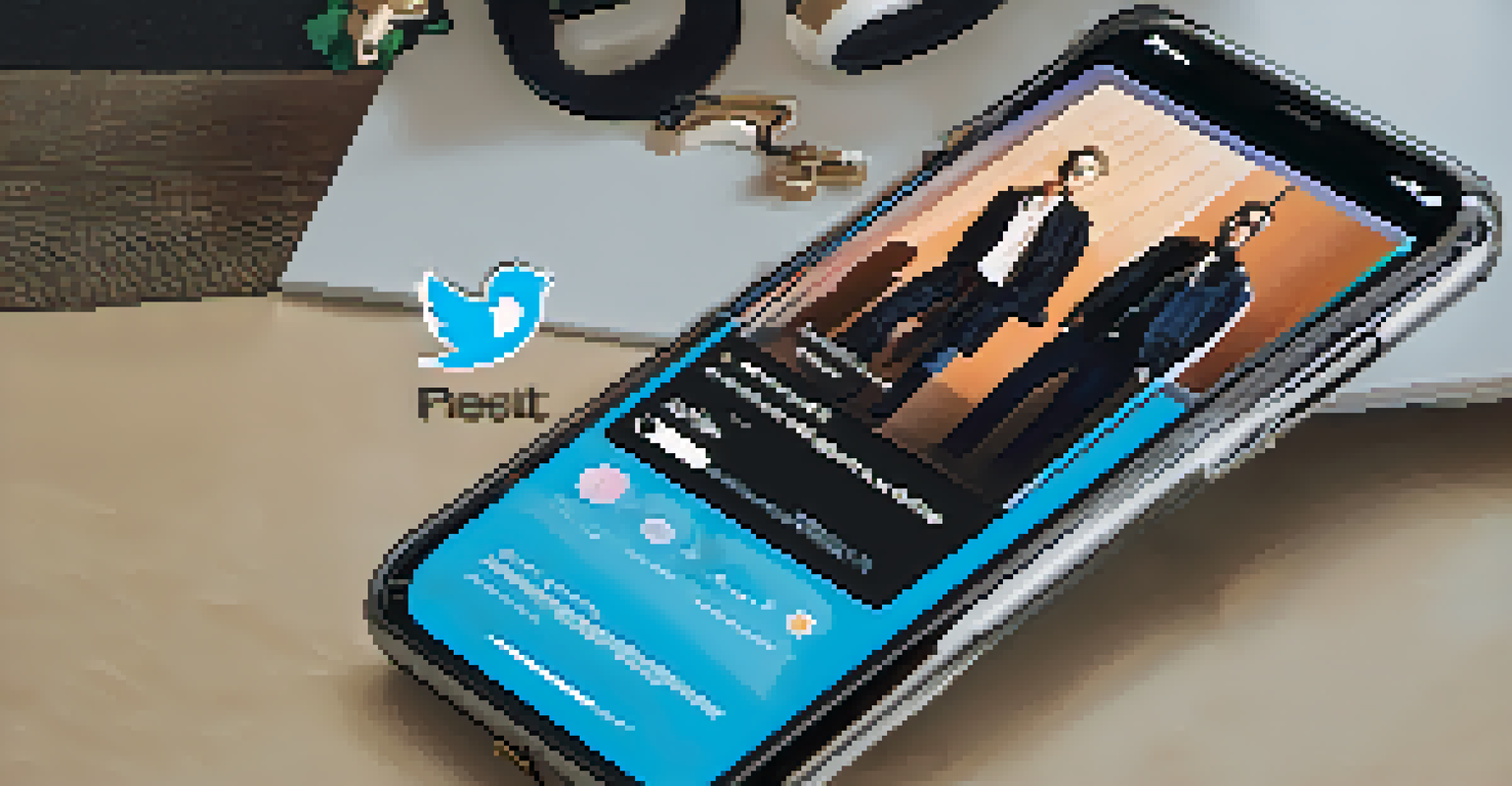Twitter's Role in Real-Time Music Promotion and Buzz

The Evolution of Music Promotion on Twitter
Twitter has transformed the way artists promote their music. Gone are the days when promotions were limited to traditional media; now, musicians can reach fans instantly. This platform allows for immediate sharing of new releases, concert announcements, and personal updates directly from artists.
Music is a world within itself, it's a language we all understand.
With the rise of hashtags, artists can create buzz around their music by encouraging fans to engage using specific tags. For example, a simple tweet like ‘#NewMusicFriday’ can connect listeners with a plethora of new sounds from various artists. This strategy not only fosters community but also amplifies visibility.
Moreover, Twitter’s real-time nature means that trends can emerge overnight. A viral tweet can skyrocket a lesser-known artist into the spotlight, demonstrating the platform's power in shaping music promotion strategies.
Engaging Fans with Real-Time Updates
One of Twitter's unique features is its ability to provide real-time updates, which is invaluable for music artists. Whether it's sharing behind-the-scenes moments or live tweeting during a performance, artists can keep their fans engaged and in the loop. This immediate connection creates a sense of intimacy and inclusion among listeners.

For instance, when an artist drops a surprise album, a flurry of tweets can spark excitement and discussions among fans. This engagement helps create a community around the music, where fans feel like they are part of the journey. Artists can also use polls and questions to involve their audience directly.
Real-Time Engagement with Fans
Twitter allows artists to share instant updates, creating a sense of intimacy and community among their fans.
Such interactions not only help to build a loyal fan base but also encourage sharing and promote organic growth. As fans tweet about their favorite songs or experiences, they inadvertently become brand ambassadors for the artist.
Hashtags: The Language of Music Conversations
Hashtags play a crucial role in organizing conversations on Twitter, especially in the music industry. They allow users to easily find and follow topics that interest them, which is essential for both artists and fans. For example, using hashtags like #SpotifyWrapped or #AlbumRelease can lead fans to discover new music that aligns with their tastes.
The power of social media is that it forces necessary change.
Additionally, artists can create their own unique hashtags for specific campaigns or releases. This not only helps in tracking engagement but also builds a brand around the music. Fans love to engage with these tags, leading to increased visibility and interaction across the platform.
Moreover, trending hashtags can serve as a powerful tool for promoting new releases or events. When a hashtag trends, it captures the attention of a wider audience, potentially reaching listeners who may not be familiar with the artist.
Collaborations and Cross-Promotions on Twitter
Twitter is an excellent platform for artists to collaborate and cross-promote their work. By teaming up with other musicians or influencers, artists can tap into new audiences and broaden their reach. A simple retweet can introduce fans to a whole new sound they might not have discovered otherwise.
For example, when two artists collaborate on a track, they often promote it through their individual Twitter accounts. This strategy not only amplifies the buzz around the release but also encourages fans from both sides to engage. The excitement generated can lead to increased streaming numbers and concert attendance.
Hashtags Enhance Music Discovery
Using targeted hashtags enables artists to increase visibility and connect with audiences interested in their music.
Furthermore, Twitter allows for real-time discussions between artists and their collaborators, giving fans a behind-the-scenes look at the creative process. This transparency fosters a deeper connection between artists and their audience, making fans feel more invested in the music.
The Impact of Twitter Trends on Music Releases
Music trends on Twitter can significantly influence how releases are received by the public. When a song or artist starts trending, it often leads to a domino effect where more people become curious and check it out. This phenomenon has been observed multiple times, where a single tweet can propel a track to viral status.
Artists and their teams often monitor Twitter trends to gauge public interest and adjust their promotional strategies accordingly. If a particular genre or style is gaining traction, artists might lean into that to capitalize on the moment. For instance, if 'lo-fi beats' begin trending, emerging artists in that genre will likely see a spike in interest.
Ultimately, being attuned to Twitter trends allows artists to stay relevant in a fast-paced industry. By adapting to what fans are excited about, they can ensure their music remains in the conversation.
User-Generated Content: Amplifying Music Promotion
User-generated content (UGC) is a powerful tool in music promotion on Twitter. Fans often share their thoughts, experiences, and even videos related to their favorite tracks or concerts. This organic content acts as authentic endorsements, which can be more persuasive than traditional advertising.
For example, a fan posting a video of themselves singing along to a new song can inspire others to listen and share. This kind of buzz is invaluable, as it builds a community of supporters who are passionate about the music. Artists often retweet or engage with this content, further encouraging fans to create more.
Collaborations Boost Audience Reach
Artists can leverage collaborations on Twitter to tap into new audiences and increase engagement through cross-promotion.
By harnessing UGC, artists can create a sense of ownership among their listeners, making them feel like active participants in the promotion process. This strategy not only boosts engagement but also fosters a loyal fan base.
Challenges and Critiques of Twitter Music Promotion
While Twitter offers numerous advantages for music promotion, it also presents challenges. The platform's fast-paced nature means that content can easily get lost in the shuffle. Artists need to be consistent and strategic with their messaging to ensure they stay relevant and visible.
Additionally, the pressure to keep up with trends can lead to burnout for musicians. Constantly creating content and engaging with fans requires a significant time investment, which can detract from the actual music-making process. Striking a balance is crucial for long-term success.

Moreover, negative comments or backlash can spread just as quickly as positive news. Artists need to navigate criticism carefully, ensuring it doesn't harm their brand or mental health. Understanding these challenges is key to leveraging Twitter effectively for music promotion.